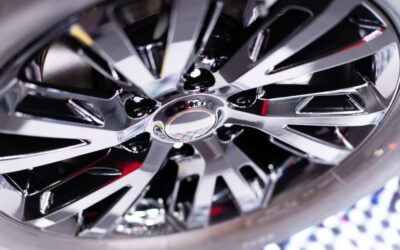If your child has recently started taking driving lessons or passed their driving test, you may be thinking about helping them choose their first car, or perhaps even buying one for them. While they may be more interested in the superficial aspects, such as the brand, colour or entertainment system, a car can be a big investment, so it is also important to consider what type of car would suit them best.
While the diesel vs petrol debate has been running for many years, hybrid and electric vehicles are also considerations now.
Diesel Cars
Diesel cars have taken a reputational battering in recent years due to the emissions scandal, however, this doesn’t mean you should completely rule out a diesel car when looking for a vehicle for your child. Although they are not as environmentally friendly as many of us were once led to believe, they do still produce less CO2 than petrol cars.
While the initial cost can be more than that of the petrol equivalent, the engines typically last longer, which is a bonus if you are buying second hand, and they are generally more fuel efficient, meaning running costs are typically lower, making them a good option for those who have to commute long distances for work or study. The savings are greater the bigger the vehicle, so if your child is looking at a supermini for their first car, this isn’t necessarily something you need to factor in when choosing which type of car to buy. If, on the other hand, they are looking at a medium or large sized SUV, the savings can be significant.
With sales in diesel cars declining, some manufacturers are offering highly discounted prices. However, with new restrictions on some diesel cars being added such as increased road tax and the London Toxicity Charge, you should find out how they might affect you.
Petrol Cars
Although up until recently there had been a push on diesel cars, petrol is still the most common choice, and this means that there is plenty of choice on the second hand market. Modern petrol cars often have turbocharged engines, so do not have the same performance issues compared to diesels, as they did in the past.
Petrol cars are ideal for driving short distances in urban environments, where speeds are typically slower, and the difference in fuel consumption compared to diesel engine cars is less noticeable. Unlike diesel cars, there is no need to take them for a blast on a motorway on a regular basis in order to keep them running smoothly.
Repair costs of petrol cars are typically cheaper than their diesel equivalent, for example there are no particulate filters or costly faulty fuel pumps and injectors to replace.
Hybrid Cars
Since the introduction of the Prius over 20 years ago, hybrid cars have improved, but the fundamental principle of a car containing both a petrol engine and electric motor remains the same. How much the electric motor is used changes from vehicle to vehicle.
More basic models will simply see the electric motor providing a bit of extra power when it is needed. At the other end of the spectrum, plug-in hybrid electric vehicles can cover a reasonable distance using the electric motor alone. While the majority of these will have a range of 20-30 miles, there are a few that can cover much bigger distances – these vehicles are essentially electric cars, but with a small engine that can charge the battery when there is no charging point available.
Hybrid cars are a good choice if you, or your child, are environmentally conscious, but cannot commit to a fully electric vehicle. You might not live somewhere that the battery can easily be charged, or they regularly cover long distances, for example spending most of the day driving around for work, or attending university at the other end of the country.
Electric Cars
Electric cars have come a long way in recent years, with the number on the road multiplying by almost 40 times between 2013 and 2018. There are now lots of different makes and models to choose from if considering an electric vehicle, as well as charging points throughout the country. The government also offer a plug-in car grant to help with the costs.
While the range and charge time of electric vehicles are constantly improving, it can still be a limiting factor at the lower end of the market. It is important to think about where the car will be charged, especially if your child is considering going to university or moving out in the near-future, as even if you have a driveway where it can easily be charged, this may not be the case with their future accommodation.
The type of car that is most suitable for your child is likely to depend on their circumstances, so it is important to take this into account before spending a significant sum of money on a new vehicle.




